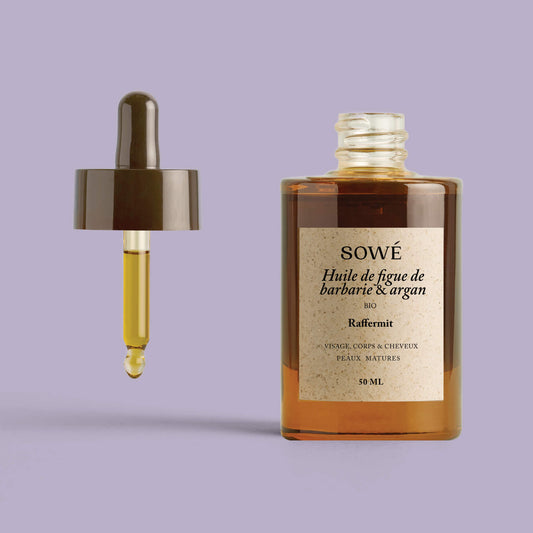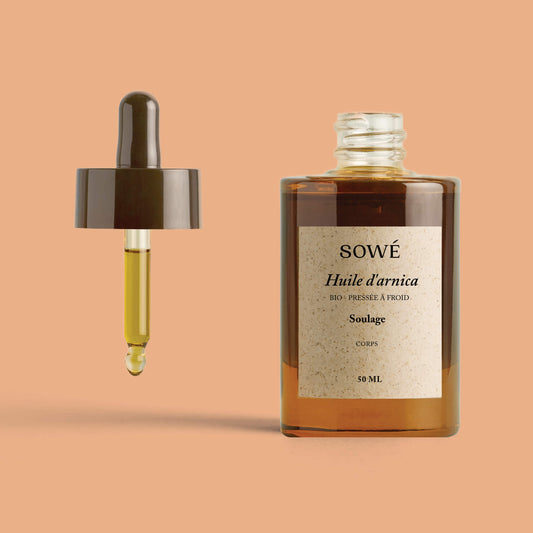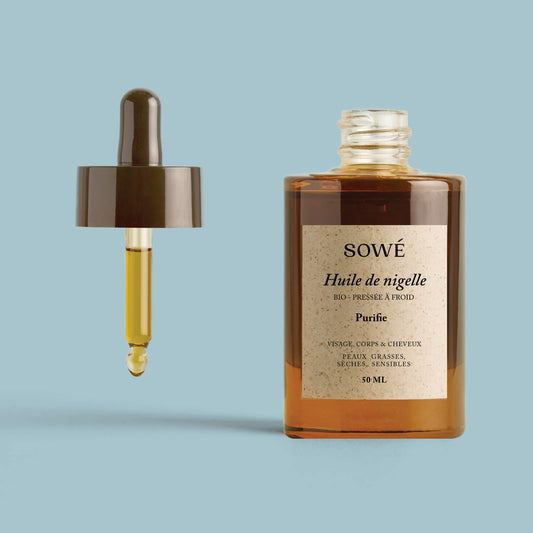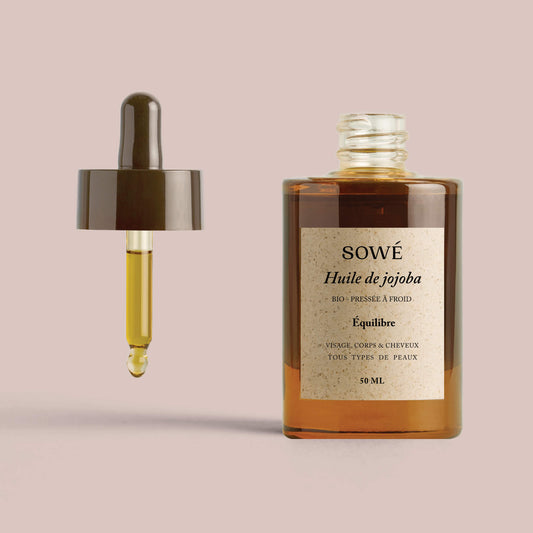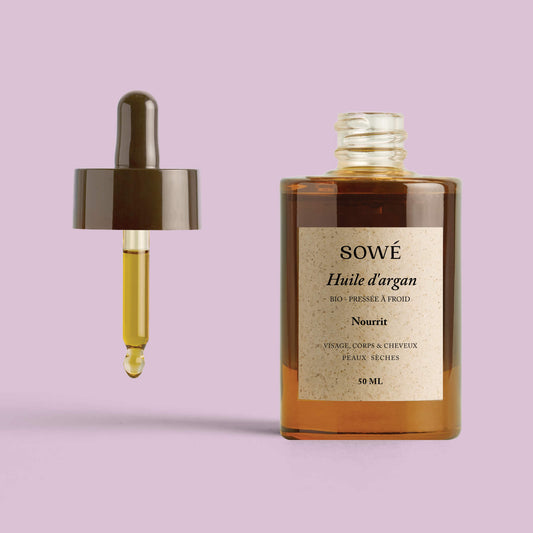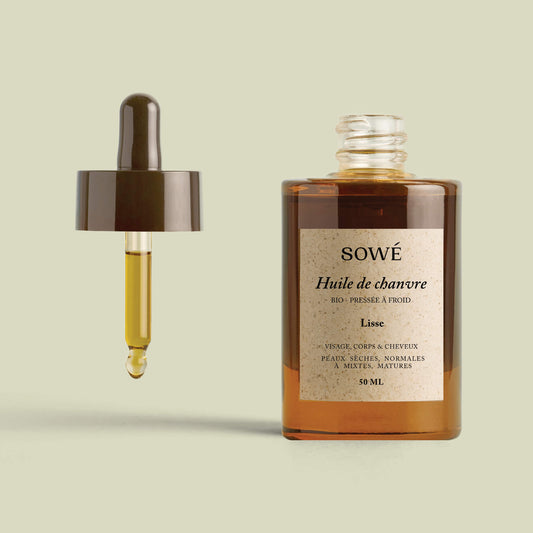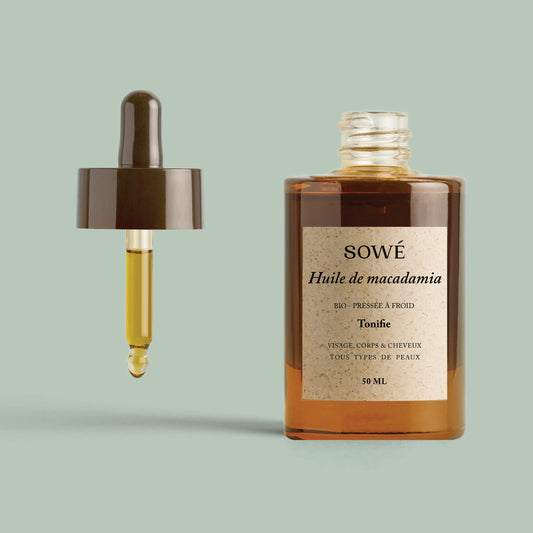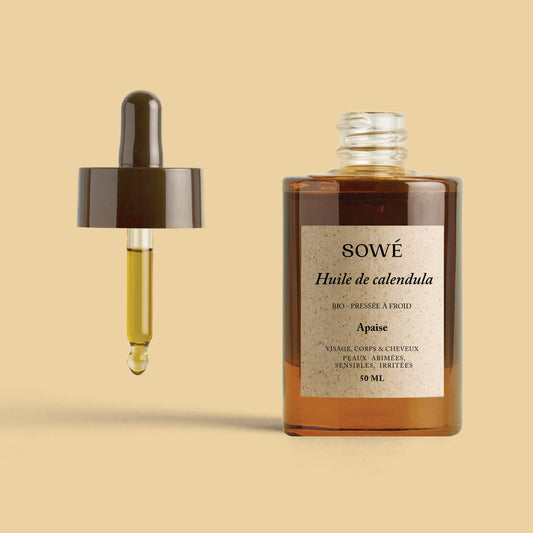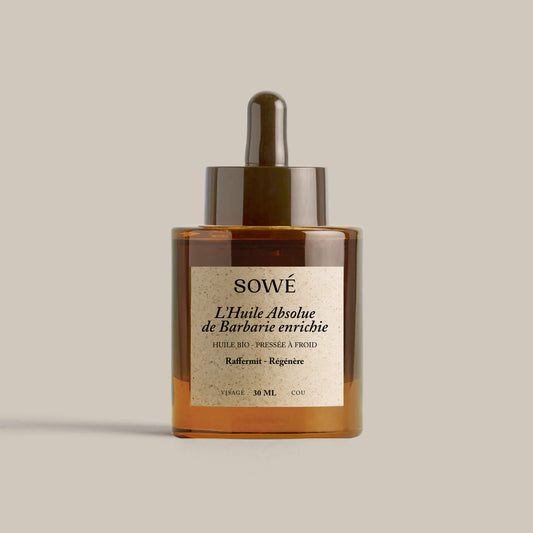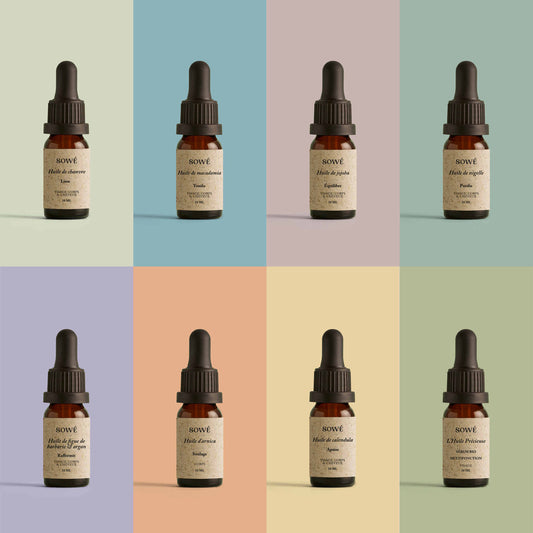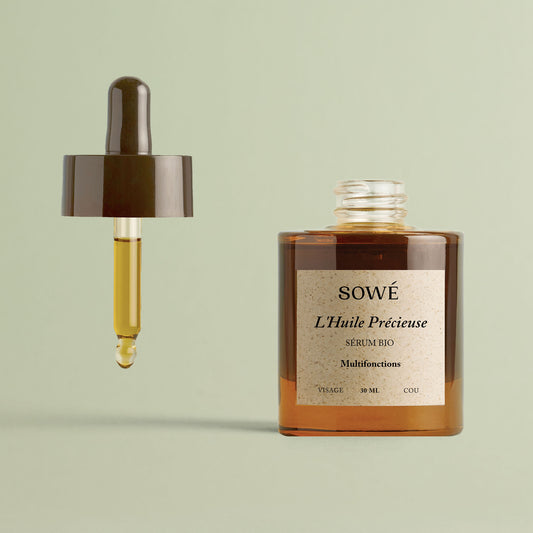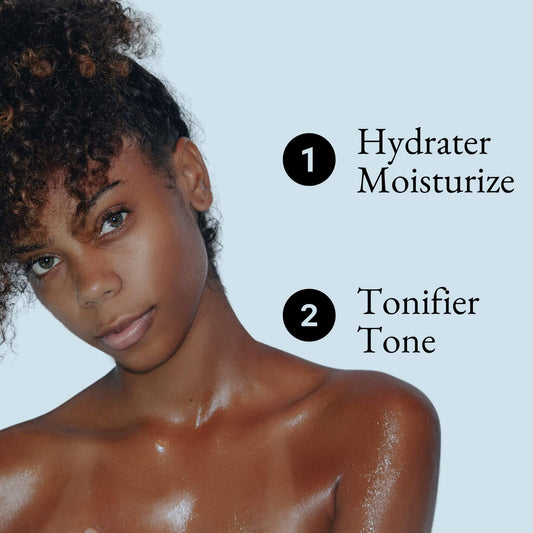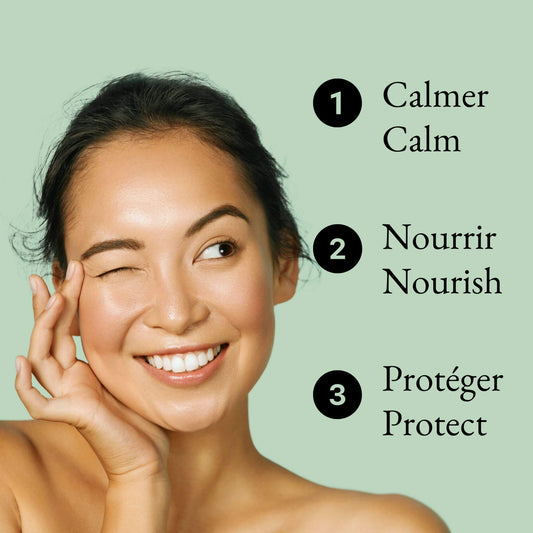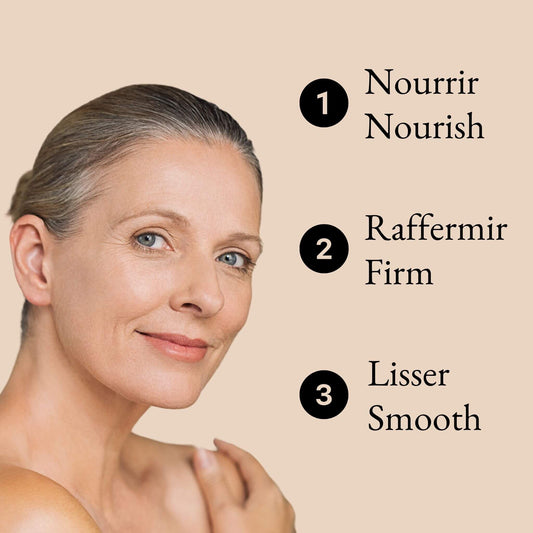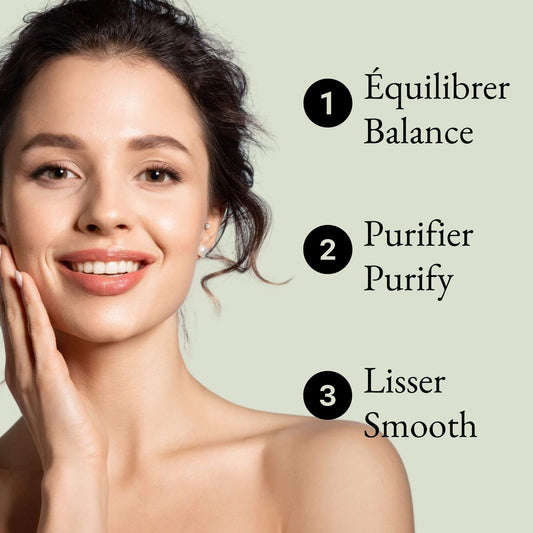Vegetable and essential oils: a comprehensive guide
Vegetable oils and essential oils are two types of products often confused, but which present important differences both in their composition and in their uses. Understanding these distinctions is essential to make the most of their beneficial properties while avoiding any health risks.
Vegetable oils
Vegetable oils are fats extracted from seeds, fruits, or oil-bearing plants such as almond, olive, or borage. They are obtained by cold pressing or chemical processing of raw materials to obtain a fluid and greasy texture. Vegetable oils are rich in essential fatty acids, antioxidants, and vitamins, preserved when they are extracted by cold pressing. These oils are used in cosmetics for their moisturizing, nourishing, regenerating, and protective properties for the skin. It is crucial to choose virgin and organic vegetable oils, free from solvents and pesticides, to ensure their effectiveness and safety.
The different vegetable oils and their properties
Let's take a closer look at the different vegetable oils, as well as their specific properties.
Sweet almond oil
Rich in essential fatty acids and vitamin E, it is moisturizing, soothing, and softening. Ideal for sensitive and dry skin.
Olive oil
It is nourishing, regenerating, and protective. It is suitable for all skin types and is often used as the main ingredient in body care products.
Borage oil
Very rich in omega-6 essential fatty acids, it is renowned for its regenerating and anti-aging properties. It is particularly suitable for mature skin.
Argan oil
It is moisturizing, regenerating, and antioxidant. It is suitable for dry, mature, and dull skin, and it is also used for hair to nourish and revitalize it.
- Organic argan oil from SOWÉ Botanic Lab
- Learn more about argan
Jojoba oil
Its composition is close to the skin's natural sebum, making it an excellent oil for balancing the skin. It regulates sebum and is suitable for all skin types, even oily ones.
- Organic jojoba oil from SOWÉ Botanic Lab
- Learn more about jojoba
*Prickly pear seed oil
This oil is extremely rich in vitamin E and essential fatty acids. It is very moisturizing, regenerating, and anti-aging. It is particularly effective for nourishing the skin, reducing wrinkles and fine lines, and restoring radiance to the complexion.
- Organic *prickly pear and argan oil from SOWÉ Botanic Lab
- Learn more about *prickly pear
*preckly pear is the fruit of cactus.
Hemp seed oil
Hemp seed oil is rich in omega-3 and omega-6 essential fatty acids, as well as vitamins and minerals. It is very moisturizing, soothing, and regenerating, and is particularly suitable for sensitive, irritated, or redness-prone skin.
- Organic hemp seed oil from SOWÉ Botanic Lab
- Learn more about hemp seed
Black seed oil
This oil is renowned for its antibacterial, antioxidant, and anti-inflammatory properties. It is often used to treat acne, inflammatory skin conditions, and skin irritations.
- Organic black seed oil from SOWÉ Botanic Lab*
- Learn more about black seed
Calendula oil
Calendula oil, also known as marigold, is soothing, healing, and anti-inflammatory. It is used to calm skin irritations, minor burns, sunburns, and sensitive skin.
- Organic calendula oil from SOWÉ Botanic Lab
- Learn more about calendula
Arnica oil
Arnica oil is known for its anti-inflammatory and analgesic properties. It is used to relieve muscle pain, soreness, bruises, and sprains, and can also help reduce bruises.
- Organic arnica oil from SOWÉ Botanic Lab
- Learn more about arnica
Macadamia oil
This oil is very nourishing, softening, and regenerating for the skin. It is rich in essential fatty acids and antioxidants, and is particularly effective in moisturizing dry skin, preventing stretch marks, and reducing signs of skin aging.
- Organic macadamia oil from SOWÉ Botanic Lab
- Learn more about macadamia
Essential oils
Essential oils are concentrated extracts of aromatic plants obtained by steam distillation of different parts of the plant, such as leaves, flowers, bark, or roots. They can also be obtained by cold pressing fresh citrus peels. Essential oils are highly concentrated volatile compounds, containing the active principles of the original plant. They must be used with caution and diluted in a base, such as a vegetable oil, cream, or shampoo, as they can be irritating or allergenic, especially for children, pregnant or breastfeeding women, and sensitive individuals. It is important to choose essential oils certified as 100% pure and natural, coming from plants grown without pesticides and distilled in accordance with quality standards.
The different essential oils and their properties
Let's take a closer look at the different essential oils, as well as their specific properties.
Fine lavender
It is soothing, healing, and antibacterial. It is used to calm skin irritations, promote healing, and relax the mind.
- Relax booster with organic essential oils - Lavender scented from SOWÉ Botanic Lab
- Renew booster with organic essential oils - Ylang-Ylang scented from SOWÉ Botanic Lab
- Learn more about fine lavender
Tea tree
Antiseptic and antibacterial, it is used to treat skin problems such as acne, pimples, and skin infections.
Damask rose
Regenerating and anti-wrinkle, it is used in anti-aging care to nourish the skin and reduce signs of aging.
Ylang-ylang
Relaxing and aphrodisiac, it is used for its soothing properties on the skin and its positive effects on mood and well-being.
- Renew booster with organic essential oils - Ylang-ylang scented from SOWÉ Botanic Lab
- Learn more about ylang-ylang
Lemon
Tonic and purifying, it is used to brighten and refresh the skin, as well as for its stimulating properties on the mind.
- Detox booster with organic essential oils - Orange blossom scented from SOWÉ Botanic Lab
- Relax booster with organic essential oils - Lavender scented from SOWÉ Botanic Lab
- Learn more about lemon
Bourbon geranium
Regenerating and balancing, it is used to regulate sebum production, reduce skin imperfections, and revitalize the complexion.
Frankincense
Anti-wrinkle and regenerating, it is used to promote healing, stimulate cellular renewal, and reduce signs of aging.
Roman chamomile
Soothing and anti-inflammatory, it is used to calm skin irritations, redness, and itching, and to promote the healing of sensitive or irritated skin.
Orange blossom
Known for its soothing, balancing, and regenerating properties, orange blossom essential oil is extracted from the flowers of the bitter orange tree. It is often used in aromatherapy to calm stress, anxiety, and sleep disorders. Cosmetically, it is renowned for its toning effects on the skin, its brightening action on the complexion, and its delicate fragrance. It is suitable for all skin types, including sensitive skin, and can be used in blends for facial, body, and hair care.
- Detox booster with organic essential oils - Orange blossom scented from SOWÉ Botanic Lab
Differences between essential and vegetable oils
Composition and extraction method
Vegetable oils are fats extracted from seeds, fruits, or oil-bearing plants by cold pressing or chemical processing, whereas essential oils are concentrated extracts of aromatic plants obtained by steam distillation or cold pressing.
Virgin or cold-pressed vegetable oil
When a vegetable oil is cold-pressed, it means that the extraction process does not involve heating the seeds or fruits to high temperatures. This pressing method helps preserve the essential nutrients present in the oil, such as essential fatty acids, vitamins, and antioxidants. These compounds are sensitive to heat and can be degraded when exposed to high temperatures, reducing the benefits of the oil for the skin.
Cold-pressing the seeds also ensures better oil quality, as it retains its natural properties and characteristic aroma. Cold-pressed oils are often considered purer and more beneficial for the skin, as they have not been altered by heating or refining processes.
Organic essential and vegetable oil
The choice of organic oils is important for several reasons. Firstly, organic oils are produced without the use of pesticides, herbicides, or other harmful synthetic chemicals. This means they are more environmentally friendly and overall healthier.
Additionally, organic oils are often grown under more natural and sustainable conditions, which can contribute to the preservation of biodiversity and ecosystem health. Organic farming practices typically promote crop rotation, soil conservation, and the reduction of the overall ecological footprint.
Finally, organic oils are subject to strict quality and traceability standards, ensuring their purity and authenticity. Organic certifications provide consumers with assurance that the products they are using are produced responsibly and in accordance with environmental and ethical standards.
Properties and uses
Vegetable oils are mainly used in cosmetics to moisturize, nourish, and protect the skin, while essential oils are used for their various therapeutic properties, such as aromatherapy, relaxation, or for their antibacterial, antifungal, or anti-inflammatory properties.
Usage precautions
Vegetable oils are generally well tolerated by the skin and can be used undiluted, whereas essential oils should always be diluted in a base and used with caution due to their high concentration of active ingredients.
To your oils!
Although vegetable oils and essential oils share plant origins and cosmetic uses, they have fundamental differences in terms of composition, extraction, and uses. Understanding these differences is essential for choosing products suited to individual needs and for using them safely and effectively.
By judiciously combining these vegetable and essential oils, it is possible to create customized blends to meet specific skin needs and achieve optimal results in skincare. This is the Mix & Match principle from SOWÉ Botanic Lab.




